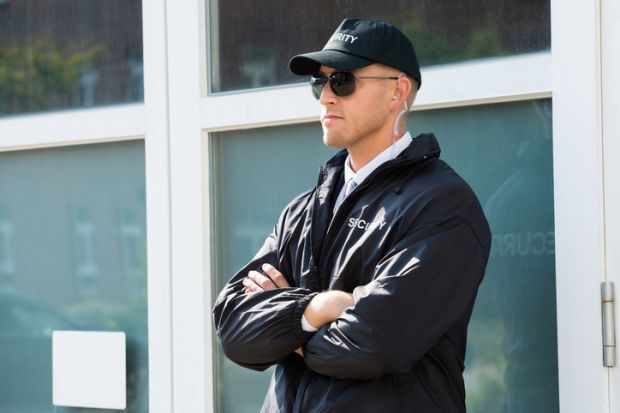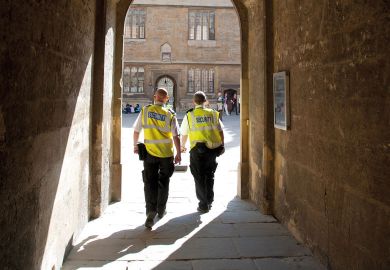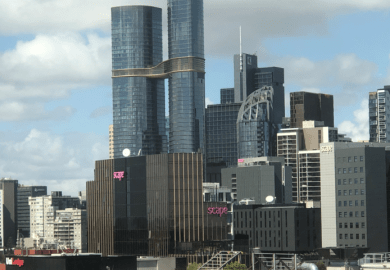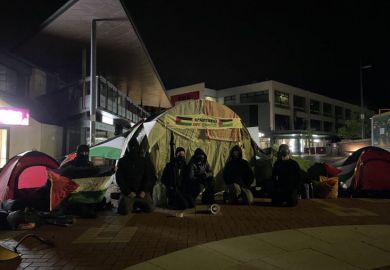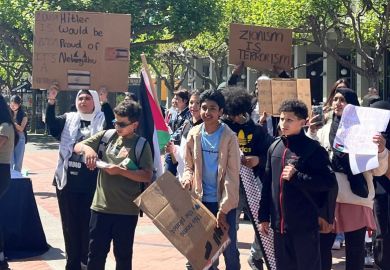In 2020, following the reckoning sparked by the global Black Lives Matter uprisings, many called for institutions to do much more in pursuit of racial justice. These calls were particularly prevalent in higher education, where a critical light was shone on how racism shaped university experiences.
Of course, calls for racial justice did not begin in 2020. There is a much longer history of antiracist resistance from students and staff, which has drawn attention to how racism pervades higher education, including through curricula, representation in the lecturing body and in the gap between the proportion of black and white students being awarded good grades.
This activism has also drawn attention to the enactment of policies such as the UK’s Prevent duty, which purportedly seeks to monitor those deemed to be at risk of supporting or committing terrorism but in reality has further entrenched Islamophobia, and the “hostile environment”, which has embedded immigration control deep into the everyday life of universities. It mirrors a significant body of scholarship that has highlighted the intransigence of racism in universities, pointing particularly to its institutional nature.
Despite this growing scholarship and activism, a much under-discussed manifestation of institutional racism in higher education relates to the securitisation of university campuses. While some high-profile incidents have drawn attention to this issue, sparking mobilisation and action amongst students, an academic evidence base has been lacking.
Employing a mixed-methods and multi-scalar approach, our new report examines racism as one of several key areas of concern raised by students in relation to securitisation in higher education, alongside the policing of activism, the handling of the pandemic and responses to gender-based violence and mental health crises. Whose Campus, Whose Security?, published by the Centre on Dynamics of Ethnicity, and authored with Kerry Pimblott, Siobhan O’Neill and Harry Taylor, is the first academic study of its kind to explore students’ view on, and experiences of, security services and police on UK university campuses.
The report reveals that security services are expected to juggle an expanding and competing set of demands. Although students see security personnel regularly on campus, they are unclear about the extent to which security services keep them safe. This is particularly the case for black students, with almost half of black survey respondents (47 per cent) stating that security services do not keep students safe.
Almost three-quarters of all respondents (74 per cent) reported believing that some students were more likely than others to have encounters with security services and police on campus, with race identified as the most significant factor affecting the chances of an encounter.
This sense that race is significant in relation to campus security services was reflected in our interviews, too. Alex (all names used are pseudonyms), a white student, observed being treated differently from friends who are people of colour. Zee described police and security services as a threat because “they target and racially profile and then do harm”. And Daisy, a black student, reported that she and a black friend were fined for breaching Covid regulations when the police entered her university accommodation, while white peers who were also present were not fined. She felt that this was “injustice, something racial” – and research suggests that the pandemic exacerbated a general pattern of racially unequal policing.
A black survey respondent said that “every time” he entered his students’ union building, he was “the only one to get stopped and searched”. He also reported being accused of dealing drugs when he was with his friendship group of black men, and he was far from the only respondent to express concerns about how the stereotyping of black men as potential drug dealers affects security practices and student experiences. In this sense, the logics driving racialised securitisation practices on campus reflect wider patterns of racist policing.
Relatedly, experiences of securitisation are also shaped by an institutional desire to keep non-students off campus. In some cases, this practice is advocated for by students, concerned that “outsiders” bring criminalised behaviours such as drug dealing onto campus. Importantly though, it seems that racially minoritised students generally, and black students particularly, will find themselves marked as potential “outsiders” on campus. For some survey respondents, this was felt to have resulted in direct and hostile encounters with security personnel, contributing to a sense that they did not belong at their university.
The calls for racial justice in 2020 saw many universities publish public statements that detailed a commitment to addressing racism on their campuses. Critics warned at the time that the statements were hollow, and our study reinforces that view. If institutions are to revisit their commitments and to truly commit to actualising racial justice, it is essential that they understand how securitisation can perpetuate institutional racism.
Remi Joseph-Salisbury is a reader in sociology at the University of Manchester. Laura Connelly is a lecturer in criminology at the University of Sheffield.
Register to continue
Why register?
- Registration is free and only takes a moment
- Once registered, you can read 3 articles a month
- Sign up for our newsletter
Subscribe
Or subscribe for unlimited access to:
- Unlimited access to news, views, insights & reviews
- Digital editions
- Digital access to THE’s university and college rankings analysis
Already registered or a current subscriber? Login
